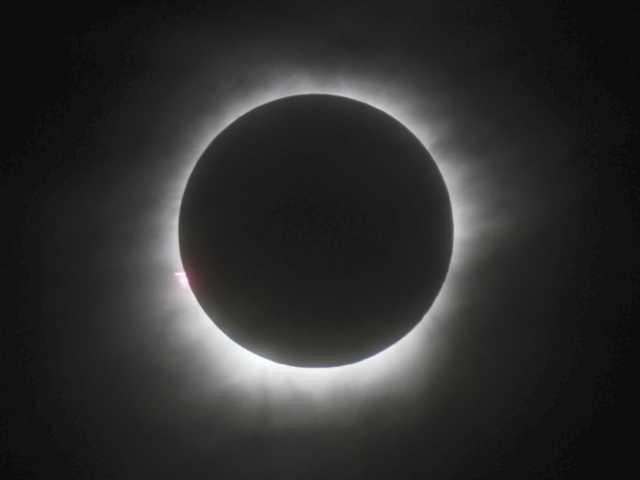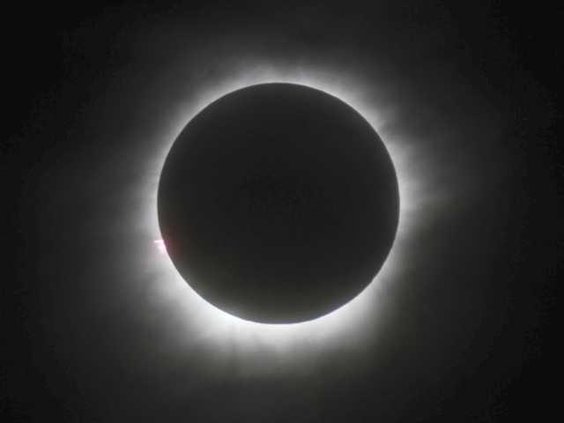LOS ANGELES — Ronald Dantowitz has been looking forward to Monday's solar eclipse for nearly 40 years.An astronomer who specializes in solar imaging, he's been photographing eclipses for more than three decades, and will be using 14 cameras to capture the Aug. 21 celestial event. The cameras have solar filters to capture the eclipse in its partial phases, along with custom modifications that can photograph the corona and light wavelengths that are invisible to the human eye, allowing scientists to view and study the sun's temperature and composition in a way only possible during a total eclipse, he said.Dantowitz, who is based at Dexter Southfield School in Brookline, Massachusetts, is lending his expertise to NOVA's "Eclipse Over America," airing at 9 p.m. EDT Monday on PBS. That hourlong special, which will incorporate his images, is among extensive coverage planned on TV and online of the first solar eclipse to cross the United States in 99 years.Still, witnessing totality — when the sun is completely obscured by the moon — is best done with the naked eye, not a camera, Dantowitz said, adding that protective lenses are needed to view partial phases of the eclipse."Enjoying totality by eye is more rewarding," he said. "There is much to see: stars during the daytime, the million-degree solar corona, and seeing the sun blacked out during the daytime."I have been waiting almost 40 years for this eclipse, and although I will be operating 14 cameras during totality, I will certainly take a moment to gaze at the eclipse the same way people have done for thousands of years: with wonder."For those not in the 14 states comprising the eclipse's "path of totality," here's a look at some of the viewing opportunities online and on TV:— "Eclipse of the Century ": In partnership with Volvo, CNN plans two hours of livestreaming, 360-degree coverage accessible in virtual reality through Oculus and other VR headsets beginning at 1 p.m. EDT. Accompanying television coverage will include reporting from Oregon, Missouri, Tennessee and South Carolina.— "Eclipse Over America ": The PBS science series NOVA is planning a quick turnaround on its eclipse documentary premiering Monday.
Can't see the solar eclipse?
Tune in online or on TV


Sign up for the Herald's free e-newsletter